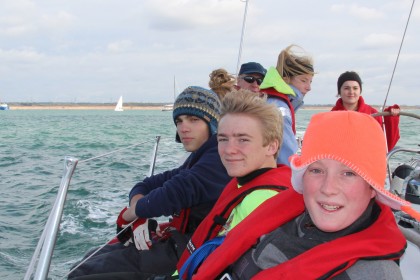ICC - International Certificate of Competence Explained
We are increasingly being asked about what qualifications are needed when you charter or go on flotilla holidays in Europe. Turkey, Greece and Croatia are particularly popular sailing holiday destinations and over the last few years, they have all generally got more stringent in their demands for skippers of all vessels to hold certificates which indicate levels of competence.
The type of certificate you need to hold varies from country to country. A full STCW Certificate, which by international agreement sets the Standard of Training, Certification and Watchkeeping among professional seafarers is generally accepted, but this is a very high level qualification which is seldom held by leisure sailors.
When you charter overseas the yacht will not normally be UK flagged, and if this is the case, then you will need to hold a certificate which is accepted by the country in which you are sailing. Surprisingly, Royal Yachting Association (RYA) qualifications such as Day Skipper, Coastal Skipper and even Yachtmaster are not usually accepted on their own. Most often you will be asked to provide an International Certificate of Competence, or ICC as it is commonly called. Our best advice is to check with the charter / holiday company before you book and obtain written confirmation of what sailing certificate or licence will be required when you are on holiday.
International Certificate of Competence
The International Certificate of Competence (ICC), or more correctly the International Certificate for Operators of Pleasure Craft is fast becoming the accepted qualification for leisure sailors in most European countries. Contrary to popular belief, the ICC is not of EU origin and isn’t the boating equivalent of the EU driving licence for road vehicles, which all EU member states are obliged to accept. It was originally created to allow pleasure navigation along the rivers Rhine and Danube and was adopted by The United Nations Economic Commission for Europe (UNECE) Inland Transport Committee Working Party on Inland Water Transport (A bit of a mouthful!). Its primary aim was to standarise the qualification needed to navigate these two great rivers, which pass through a number of countries; each of which had its own certification requirements.
How to get your International Certificate of Competence (ICC)
Eligibility for ICC
There are two main criteria for getting your ICC, these are your nationality and level of competence.
Nationality
The RYA issues ICCs in the UK in accordance UNECE eligibility criteria. Applicants should be aged over 16 and be one of the folllowing;
- British National or Resident
- National of a non-UNECE County
- National of United States or Canada
- National of Australia or New Zealand
- Evidence of Competence
You can be issued an ICC directly if you already hold one of the following RYA practical certificates;
- Powerboat level 2
- RYA Day Skipper
- RYA Coastal Skipper
- RYA/MCA Yachtmaster Coastal
- RYA/MCA Yachtmaster Offshore
- RYA/MCA Yachtmaster Ocean
Send in a completed ICC application form with a copy of your certificate, a passport sized photograph and £50 (free if you are an RYA member) to the RYA and you’ll get your ICC back within a couple of weeks. If you are in a hurry, a Fastrack service is available priced at £99 for non members but cheaper if you are a member of the RYA.
If you are an experienced skipper but you don’t hold any of these certificates, then you can gain your ICC by attending an assessment. If you have your own boat, or charter one, then we can arrange for an assessor to come along and test you with up to 3 other people onboard. Alternatively you might want to consider attending a BOSS ICC weekend on board a school boat. This will include brush up training and revision of the skills required before taking the assessment. Full details of eligibility and whats involved in the test can be found on the application form and this can be downloaded from our ICC Page.

